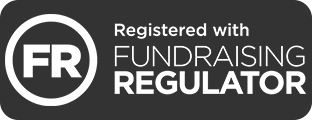Six ways to boost your personal productivity
Posted on 25 September 2017 by Nick Chubb
There are only 24 hours in a day and ideally, you should spend eight of those asleep. By the time you’ve done a day’s work, enjoyed some down time, exercised, spent time with family, and had three meals there isn’t much time left for anything else. When you take on a distance learning course you need to squeeze in at least a few more hours a week that you can dedicate to your study time.
How can you find the time to fit studying in on top of everything else? Whether you’re working or studying, our productivity hacks will help you make the most of whatever time you do have.
Start planning
Do you ever have so much to do you don’t even know where to start? Feeling completely stuck is likely the number one reason you end up doing nothing. The solution however, is pretty simple; write down what it is you need to do, work out which is the highest priority and start with that. You’ll be amazed how quickly you can get stuff done and you’ll probably feel a whole lot better once you start to make progress. If you want to get a little more sophisticated there a plenty of free project management tools out there; check out Trello (available offline if you’re at sea), for a simple way to track your progress from “to-do” to “done”.
Do not disturb
According to a 2016 study, we swipe our phones on average over 2,600 times per day, and yet we all still wonder why we never get anything done! There’s nothing more distracting than a notification on your phone especially if you’re trying to get an assignment done. The iPhone and most Android handsets have a “do not disturb” feature. This feature allows you set a specific length of time that you shouldn’t be disturbed for, or to schedule in regular distraction free timeslots. You can even set exceptions which mean that important people (eg. significant other) can still get through to you if they need to.
Don’t get distracted
Most people will tell you that if you want to avoid distractions you should get yourself into a quiet room away from other people, which is absolutely right. The only problem is that locking yourself in a quiet room for hours on end won’t protect you from the biggest productivity killer on the planet – the internet. We’ve all innocently Googled the answer to a pressing question relating to our study/work and then been dragged into four hours of cat videos and epic fails on Youtube. It’s inevitable because the entire internet economy is designed to distract you; Google, Facebook, et alia make their money from advertising and they’re very efficient at taking you away from what you were doing.

The simple solution to avoid internet-based distractions is to unplug from the internet (I know it’s hard, but be strong). Unfortunately, that’s not always practical because you need to do genuine research and the internet is a great place to start. If you find yourself getting distracted online (and be honest, you do), then try Self Control which allows you to block distracting websites for a set period of time meaning you can Google to your heart’s content without any danger of getting stuck in a Youtube hole. If you’re not a Chrome user there are plenty of alternative plugins available for pretty much any browser or OS.
Music
It’s not always possible to get into a quiet room away from distractions and people, but it’s nearly always possible to plug into a good pair of headphones and listen to some music. Music is great if you are doing anything dull or repetitive and research has shown that a moderate level of ambient noise improves concentration and makes people more productive. Whether you’re into Baroque opera or dirty dubstep, plugging into headphones is a great way to get concentration flowing.
Stop the endless to-do list and start scheduling
Working out what you’ve got to do is important but just keeping a to-do list that never ends is almost as bad as not knowing what you’re doing next. Parkinson’s law tells us that “a task will expand to fill the time allotted to it”, when we don’t allot any specific time to a task it’ll just keep expanding. Once you’ve worked out what you need to do and what your priorities are you should schedule in a start and finish time and stick to it.
According to productivity expert Cal Newport “Scheduling forces you to confront the reality of how much time you actually have and how long things will take”. If you schedule in two hours to write an essay on Monday evening you’re much more likely to complete the task than if you just plan to “get it done sometime this week”. You’re also much more likely to complete the essay in two hours rather than spending six hours on it spread across the week. Make sure you schedule your task for when you’re likely to be productive and allocate enough time to complete the task, but equally make sure you don’t give yourself so much time that you can afford to procrastinate.
Take a break
You work hard! Take a break! Contrary to what you may think, you’ll get less done if you don’t take regular breaks. Regular breaks will help you make the most of the time you’ve got; try the Pomodoro Technique if you’re looking for an easy way to structure your breaks. Researchers at the University of Illinois found that brief diversions vastly improve focus for prolonged periods of time so there’s no need to feel guilty for taking a tea break. The bottom line though is this, if all of a sudden you stop being productive, it’s time to take a break.
Don’t forget that whatever you’re studying we’re here to help. If you need any advice or support on distance learning, get in touch with us.





